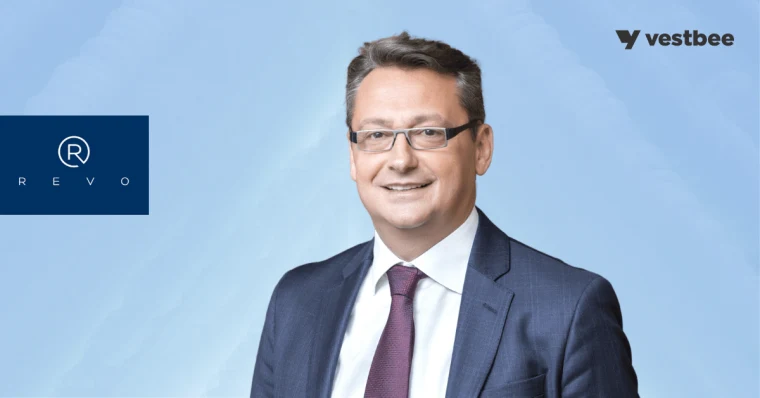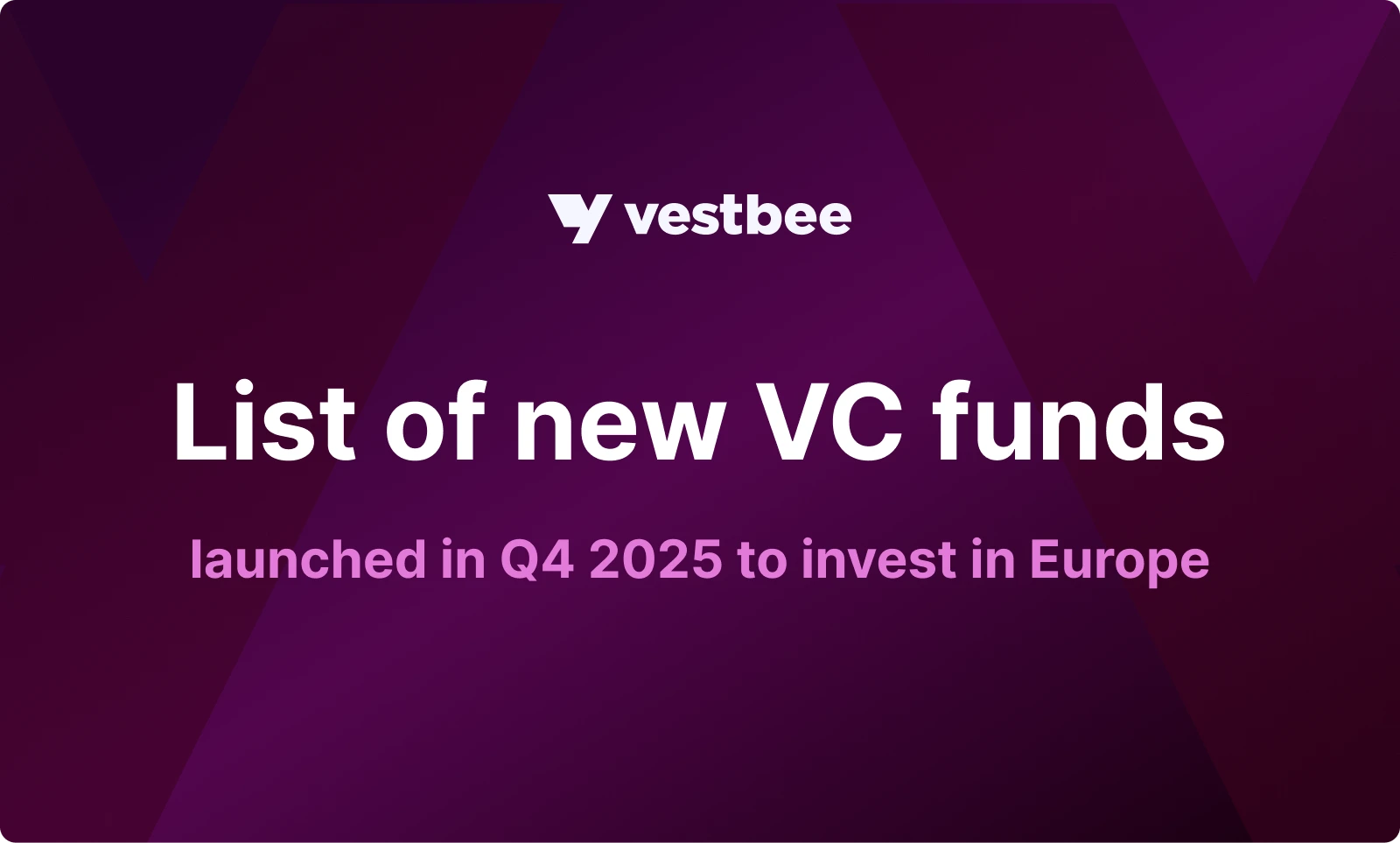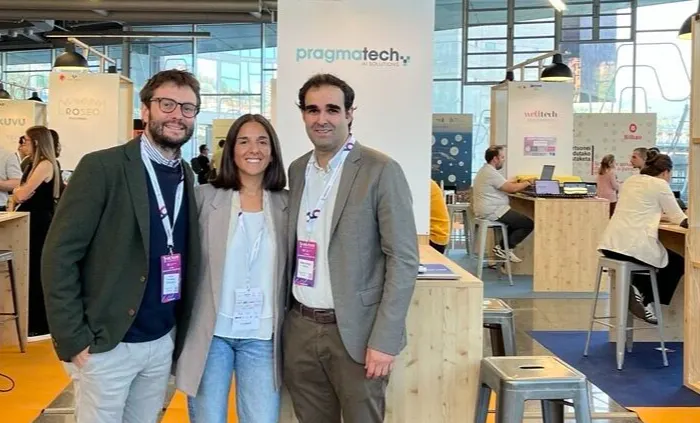Revo Capital is the largest VC firm in Turkey founded in 2013, investing in innovative, early-stage B2B or B2C technology ventures in Eastern Europe, Baltics, and Turkey. They focus on series A and series B companies with a proven product-market fit and potential for global market disruption from FinTech, B2B Cloud, Marketplaces, Big Data & AI, Marketing Tech, Health IT verticals. The total size of the funds that Revo Capital manages is $188M and its portfolio consists of 26 investments (including unicorn Getir) with 6 exits so far.
Fund Strategy Overview
Geography: Eastern Europe, Baltics, Turkey
Preferred industries: FinTech, B2B Cloud, Marketplaces, Big Data & AI, Marketing Tech, Health IT
Investment ticket: €1-6M
Company stage: Early Stage, Series A & B
Product type: Software Technology
Product stage: Established Product
Revenues: Post-Revenue (revenue track record)
Q&A with Cenk Bayrakdar, Founding Partner & Managing Director
What are the 5 main things you look for in a startup?
While evaluating potential startups to invest in, we always look for a great team and ambition for global expansion. Moreover, a company must show the potential for market creation or disruption and present a unique or disruptive business model with a clear customer proposition.
What disqualifies a startup as your potential investment target?
The founder’s ability to articulate their vision and milestones to achieve it is key. So, it helps to have a good idea, solid business plan, and a grounded thesis around the product — these things are more tangible and easier to evaluate. Startups that have demonstrated product-market fit and show a clear path to profitability are more likely to be funded. In addition, we look at business momentum and the solidity of economic fundamentals. Failure to fulfill the above criteria disqualifies our investment in a startup.
What in your opinion differentiates the best founders from the rest?
From our perspective, the best founders have a global aspiration to grow their business and execute their vision backed by data. We appreciate startups that can include data at every stage of their decision-making process to support, develop and take their product one step further. The fact that data plays a leading role in product development, customer acquisition and business innovation is a very important benchmark for us to make a new investment.
What should startups consider before making a deal with a VC fund?
We invest in technological innovation, which is about change and challenge, the anathema to the status quo. We have a fundamental belief in the power of founders with innovative ideas to tackle society’s greatest problems, and that there is no issue unsolvable when people and innovation come together. To turn this into reality, startups need to consider three key things: forming a founding team with complementary attributes to execute the business vision, clearly communicating a global vision to expand their business, and having extensive knowledge about their market and product-market fit.
What is your approach to startup valuation and preferable share in the company?
We believe that the role of a VC is not just to provide pure cash injection based on risk assessment. Revo Capital’s model is in accordance with the “smart money” principle – providing active support in the rapid acquisition of new competencies by an organization and determination to actively support founders on their path to global success.
Our focus is on early growth stage startups with Series A & B rounds with ticket sizes ranging between €1M and €6M. Targeting from 2% to 20% when we are leading and 2% to 10% when we are following.
How do you support your portfolio companies?
Revo Capital team members’ background is predominantly from product and business, therefore we distinguish ourselves with our hands-on approach that encompasses all aspects of the business. The fund’s dedicated “Growth Team", which is responsible for the ongoing relationship with the portfolio companies, engages with each portfolio company at the tail end of the sourcing and selection process and starts actively supporting founders in successful growth and exit strategy. We work hand in hand with entrepreneurs and look forward to continuing our proven investment strategy with Fund II.
In addition, especially at later stage startups, we are observing an increasing funding gap and unrealized potentials of internationalization. We therefore believe that it is crucial for VCs to leverage and share their fundraising know-how and make introductions to international VCs as follow-on investors.
What are the best-performing companies in your portfolio?
Overall, during the intense pandemic era last year, our portfolio companies grew 2x on average (based on their local currency). Specifically, our first unicorn Getir (q-commerce) has raised $550M valuing the company at $7.5B, TransferGo (FinTech) has seen consistent 80% year-on-year growth since its launch in 2012, Massive Bio (Health IT) has achieved its full-year targets within the first five months of 2021 and Akinon (B2B cloud-based commerce platform) is growing at a rate of more than 150% year-over-year.
What are your notable lessons learned from investments that didn’t work out as expected?
Startups with founders who don’t stay up to date or aren’t knowledgeable about the market & product-market fit, where the founding team members don’t compliment each other and the ones with a single founder tend to not work out as expected.
What are the hottest markets you currently look at as VC and where do you see the biggest hype?
We focus on investing in 6 verticals: Fintech, B2B Cloud, Marketplaces, Big Data & AI, Marketing Tech and Health IT, which we recently added as a new investment vertical in our second fund. We currently see the biggest hype around FinTech, Health IT and Delivery Services.
Globally, in the first 8 months of 2021, FinTech startups received more than double the investment in 2020, providing an inflow of 73 billion dollars. The global FinTech market is expected to be worth 305.7 billion dollars by 2023.
At the end of 2020, Health/Wellness saw the largest increase in the level of capital raised in the last five years. The industry has raised a total of $8.3 Billion in VC financing, up nearly 70% year-over-year. Showing no signs of slowing down, the size of the corporate healthcare technology industry is projected to reach $1.3 trillion by 2025.
Delivery services globally continued to be a hot ticket in 2021, driving the velocity of VC deals. As in the example of Turkish unicorn Getir, which we were the first institutional investors of, the quick commerce market has grown very rapidly and attracted mega round investments. In the 2nd quarter of 2021, Getir received $555M of $746M total funding that came to Turkey, increasing its valuation to $7.5B.
In your view, what are the key trends that will shape the European VC scene in the coming years?
VC Investment in Europe surged to $34B in the 2nd quarter of 2021, a new high driven by increasing round sizes. The growth in financing was primarily driven by a growing population of mature companies and unicorns. Similarly, exits also remained strong for the second consecutive quarter with close to $58B in exit value seen in 1H21, as liquidity continues to encourage record investment. In 1H21, Turkey received a share of 2.2% in $58B total value in Europe (up from 0.3% in 2020).
In terms of market trends, COVID-19 has been a catalyst for rapid technological change driven by the shift in consumer/enterprise behavior from the status quo; increasing the appetite for experimentation and reducing adoption hurdles especially in FinTech, retail, healthcare, and education.
We are seeing accelerated interest in disruptive FinTech, especially with consumers turning to contactless card payments due to social distancing restrictions, as cash has become an unsanitary form of payment. On the other hand, banking and investing have never been more accessible, but many people remain cautious about the stability and security of digital-only financial platforms, highlighting cybersecurity & KYC.
In the wake of widespread stay-at-home orders, grocery delivery has surged and while this shift has been seen as temporary and primarily driven by the pandemic, grocery delivery continues to thrive. Yet, consolidation will likely be necessary for the online food delivery industry to achieve sustainable margins.
The rise of the digital economy is also putting new pressure on the traditional global supply chain. Businesses are demanding better visibility across delivery and supply channels, quicker shipping capabilities and the ability to source products on-demand to reflect real-time conditions at the consumer level. We view this as a compelling backdrop for new entrants seeking to address gaps in the status quo and see areas of growth across the value chain.
Lastly, capital efficiency has long been a desirable trait in early/growth stage businesses. But over the last few years, an abundance of capital combined with a “growth at all costs” mindset, allowed founders to deprioritize efficiency. In a post-Covid world, capital efficiency has returned as king. As the fundraising markets dry and sales cycles lengthen, founders will increasingly be forced to think more about efficiency and investors will pay a premium for efficient businesses.
Related Posts:
VC Of The Month - LAUNCHub Ventures (by Magdalena Balcerzak, Manager, Vestbee)
VC Of The Month - Next Road Ventures (by Magdalena Balcerzak, Manager, Vestbee)
VC Of The Month - UNIQA Ventures (by Magdalena Balcerzak, Manager, Vestbee)







